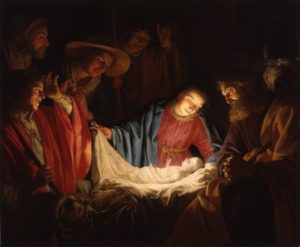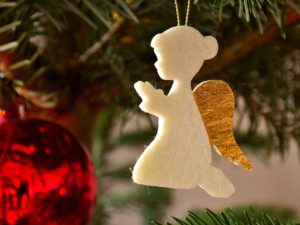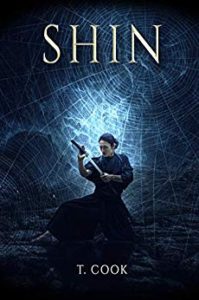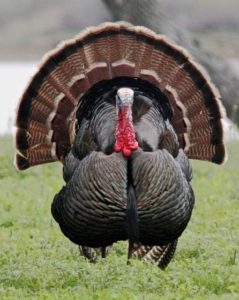The Exodus is a fictional short story based on occurrences that took place in Missouri after Governor Lilburn Boggs signed the Extermination Order against The Church of Jesus Christ of Latter-day Saints in 1838.
Category: Blog

A Lighter Christmas
After a devastating accident Martha isn’t sure her anger can subside, but with a little help, she’s willing to make a change.

Stort Story Review: Elsie
Short story review: Everything in Elsie’s life is changing, yet once again, she finds herself listening to her sons and giving up one of her most precious possessions.

A Christmas Prayer
With Bria gone, Christmas dulled my life, but then I discovered she still lit everything around me.
Loosely based on a true story. A Christmas Prayer remembers grief while celebrating life.

Book Review: Realm of Beasts by Angela J. Ford
When Citrine makes a deal with a dark creature the balance within Paradise becomes tipped. Can Tor Lir reach Paradise soon enough to help Citrine reset the balance?

A Town of Angels

Chamomile and peppermint laced the air as it floated on the steam of Rebecca’s tea. The porcelain cup warmed her hands, and she brought the first sip to her lips. Tension from her mind and muscles relaxed. It always did. That’s why tea time meant so much. Childhood had brought moments of happiness, but she lived a lonely life in a too-big, drafty house as an adult. Another sip passed her lips, and she closed her eyes, savoring the combination of earth and spice. Maybe one day she’d find the money to move. She snorted. Old age had come long ago. And not all big houses come with rich people. The worn interior, only slightly better than the exterior, still held the rugs and furnishings of her childhood. The wooden floor, long ago scuffed, lost its shine, and when she walked carelessly, the old planks poked her with slivers.
Finishing her evening tea, she peeked through the living room curtains at the dimming street. Winter had come, but no snow. Good. Snow meant shoveling. The rusted wrought-iron fence stood between her and the rest of society—a jailer or a friend—she wasn’t sure which. The plants had long overgrown their planters. Brown from the cold, they twisted together in a kind of brambled thicket. For years, Rebecca kept the family garden until her knees no longer lowered her to the ground. She had loved the feel of the moist dirt between her fingers and the fragrance of newly planted flowers.
Sighing, she dropped the curtain and clutched the rickety banister, then started toward her room. Other than meals and tea, that’s where she spent her time. No phone. No entertainment. Just her, the bed, an old rocker, and an occasional book. Most of the time she didn’t bother with the book. Pulling the covers tight, she closed her eyes. Groceries would be delivered tomorrow.
The next morning, Rebecca waited for the delivery. The boy was never timely like his father had been. She glanced out the window. Dragging her weak legs to the front door, she swung it wide. “Where?”
Her feet shuffled onto the covered porch where several slats were missing, but that wasn’t new. They’d been gone for years. Gently grasping the stair railing, she eased her weight against it and lowered herself to the walkway. A branch whacked her back after she’d pushed it out of the way, but she ignored it.
Reaching the edge of the yard, she gasped. Her wrought-iron fence hadn’t fallen over. It had disappeared. “Where did it go?”
Rick’s car parked in front of Rebecca, and she waited for him to get out.
“Hi, Miss Rebecca, enjoying the brisk morning, are you?”
“My fence is missing.”
“Let me carry your groceries in for you.”
“Have you seen my fence?”
“Can’t say I have. Did you have someone remove it?”
“Of course not.”
Rick laughed. “Consider it a work of God. Would’ve fallen over with the next wind, I bet.”
Rebecca shuffled back inside and paid Rick. He was probably right.
Throughout the day, clouds rolled in and the sky darkened. After taking tea early, she added a blanket to her bed and climbed in. Any time she might have spent outside ended. She’d rather enjoyed her walk through the brisk air that morning, but no more.
When the sun rose, she peeked through her worn curtains. Snow covered her yard everywhere but the walkways. Not a single overgrown branch hung over the concrete either. The cold air glanced across her cheeks as she opened the door. Hobbling onto the porch, she discovered the missing slats replaced. God might blow away fences and snow, and she supposed Jesus was raised by a carpenter. But did he garden too? The brambled thicket now lived as a clean, cared for yard, covered by fresh, crisp snow.
Hurrying back inside, she opened all her cupboards. Flour, sugar, butter. Did she have any chocolate chips? The stool dipped in the middle, and she clung to the pantry shelving. Three bags of chocolate chips scooted toward the edge. She brushed the dust from the bags and opened them, the aroma of chocolate rising into the air.
Ingredients combined in a bowl as she made three batches of chocolate chip cookies. Rebecca mixed while wondering if her neighbors had tired of her unkempt home. If they had, she’d pay them somehow. Without money, that meant food, and her chocolate chip cookies beat everyone else’s. She knew, whoever the elves were, they worked for themselves and not for her. She had no friends—hadn’t since childhood. That wouldn’t stop her from saying thank you.
That night, Rebecca could hardly sleep. Dressed in her robe and slippers, she snuck downstairs and perched on the sofa where she could see out the living room window. She felt like a child searching for Santa on Christmas Eve, but Christmas was still two days away. Sliding her finger between the curtains, she peered outside. Nothing had changed, but it was still early. She covered herself with the knotted afghan spread across the back of the sofa and continued checking outside late into the night. Each time, her excitement diminished just a little, until her eyes grew too heavy.
The next morning, she woke up and shot to her feet as quickly as an old woman could. Peering through the curtain, she saw nothing. Had her elves finished their work? Her feet hurried across the floor and to the door. No animal would feast on her chocolate chip cookies. She inched outside to the table where she’d set the treats. But the plates were empty. Not a single crumb remained. The elves must have enjoyed their payment. Grabbing the plates, she rushed back toward the house, tears burning her eyes. She had so hoped, but without reason. Silly old woman.
She stopped and stared at the front door, then dropped her eyes to the porch. Slowly, she scanned the front of the house. There was no bare or rotting wood. No chipped paint covered the eaves or the siding. Instead, fresh paint coated every inch of her home. A bright white. Her door, once brown, now swayed in the breeze, a bright red. And from it hung a beautiful Christmas wreath.
Her shoulders lifted. The elves had come. This time they seemed more like angels. Only angels could paint a house overnight.
Rebecca needed to thank her angels somehow. But how? She donned her best everyday dress and grabbed her purse. Frigid air met her as she teetered down her cleared walkway and onto the sidewalk. The store wasn’t that far. With the outside of her home fresh and clean, the angels had no work left to do. Cookies wouldn’t be enough. She hoped Rick would help her. Once in the store, she gazed at the Christmas decor. Choosing two strands of lights and a set of inexpensive ornaments, she stepped to the counter.
“Miss Rebecca, how nice to see you,” Rick said.
The corners of her mouth lifted. “Rick, I need your help.”
Rick didn’t make a peep as she explained her needs.
“I’d love to help, but my shift doesn’t end for a bit.”
Rebecca nodded and began to say goodbye when Rick took her by the arm and walked her to another part of the store.
“Miss Rebecca, it’s cold out there, and it might snow again. You come rest in our coffee shop with a nice cup of tea, and I’ll take you home when my shift ends. Would you like to read a book?”
She wanted to get home and work on her gift to her angels, but without Rick, there wasn’t much she could do. And the chair did look nice, so did the Christmas story he handed her. She shuffled to the chair and sat down in time for a young woman to hand her a wonderful cup of chamomile peppermint tea.
It seemed like minutes later that Rick patted her arm. “Miss Rebecca, my shift ended. Shall we go?”
He helped her from the chair and led her to his car. “So you want me to hang lights?”
She nodded.
“I can help with that.”
At the house, Rick curled and twisted the lights into the pattern Rebecca requested. She carefully stepped through the snow and hung ornaments from the lower branches of her recently trimmed trees. Though not as visible at night, they would brighten her yard during the day. When finished, she and Rick stepped back to the sidewalk. Tiny dots of light spelled out two simple words: thank you. And though Rebecca never expected the ornaments to shine at night, they reflected the Christmas lights of the neighborhood enough that the snow below them sparkled.
Rick walked her to the door, and she heard a scuttling sound from inside. “I may need you a minute longer, young man. Something is in my house.”
A new gleam in his eye sparkled, but he nodded, ready. “I’m here, Miss Rebecca.”
Before she could grasp the doorknob, the door swung open.
“Who…” Rebecca’s words dropped from her lips.
Hands guided her into her home where shouts of Merry Christmas floated to her ears. The wood floors shined again, and the furnishings were clean, some new. The banister and stairs looked new too. A large Christmas tree graced the center of her living room, and people stood everywhere. “Is this the whole town?”
Laughter rang through the room.
“Just about,” Rick said.
“Your thank you isn’t big enough, but it’s hanging outside.” Rebecca’s heart warmed, overwhelmed by the love shown to her.
She slid onto a chair, and a gentleman stepped forward, twisting a hat in front of him. As she acknowledged him, he dropped his gaze. “I have your fence at my shop, Miss Rebecca. I’m sorry I didn’t finish it in time. All the rust is gone, and I can bring it tomorrow if you’d like.”
She searched the faces of the people in her home, each one smiling bigger than the next, then rested her eyes on him again. “I think I’m done with fences. I recently discovered a whole town of angels, and I’d like to be a part of it.”
Read more short stories and book reviews at KameoMonson.com

Flash Fiction: Sinkhole Christmas

I seen my share of disasters. Monsoons, flash floods… Once a twister slammed into the center of the desert and took out a pile of rocks and a few prickly pear. Those things took place in the summer when no one was outside anyway. But I never seen nothing in the winter.
Winter’s a time to sing, dance, and eat. The whole town comes out of their houses and gathers together. Some years we wear shorts and eat snow cones; others we dress in coats ‘n scarves and pretend our sixty degrees is closer to twenty like our northern friends get. Either way, we’re out there, shaking hands, exchanging smiles, and spreading cheer all while standing in the soft green of our ryegrass lawns.
A week or two ago, Bobby and I drank our warm hot chocolate while wearing light sweaters. We stood next to Old Man Ezra while the community choir sang O Come All Ye Faithful and Rudolph for the town’s tree-lighting ceremony. People ‘round us ate iced cookies and children ran in circles around the ten-foot tall tree set in the park’s middle. Bobby was hummin’ a few bars of Jingle Bells along with the choir when the ground below our feet moaned and spat dirt. Parents lunged for children, and the rest of us lunged for them. As one, the citizens of our little town took a giant step away from that Christmas tree. Good thing too, otherwise we’d a disappeared, just like that tree, into a hole with no bottom. Why, after that hole opened up, Bobby yanked up his pants and stepped cautious-like to that abyss and threw a rock in, but no thump ever came.
The whole town figured the earth swallowed Christmas and walked away, faces hung low, shoulders drooped lower. No one looked at one another. We just went home and stayed there. Answers from one person to another varied as to where that hole come from. Some said it was God threatenin’ us because of our outrageous iniquities. Some thought it was some kinda bad joke. The sheriff said it was an underground cave formed by an old river that collapsed. Lived here my entire life, never seen nor heard of a river ‘round here. But that sounded better than a threaten’ god or a bad joke. Still, I didn’t want to join in the crazy arguments everyone was having.
Two days after the tree lighting people started stepping back outside. Parents held their kids real tight, ran their errands, and went straight home again. Same thing with the old folks. No one shook hands. No one smiled. No one said Merry Christmas. Now, Bobby and me live right in the center a town and I watched hour after hour, day after day, as the merriest time of the year turned into the sourest.
“Bobby,” I said, “you had courage to throw a rock in that hole. How d’we fix our town.”
He opened his mouth and said, “They need to remember,” then stuck his pipe back in his mouth and said nothin’ more.
“Remember what?” I swung around, wishing he’d tell me, but every time I asked, all he said was they need to remember.
I started thinking about what the people in town might a forgotten. Mrs. Morris forgot to feed her cat sometimes, but that didn’t seem right. Besides, that’s one person. This was a whole town. Occasionally, Joe came from the next town over, and we’d all forget to wave goodbye, just used to seeing him, I guess. But Joe hadn’t been around for a while, so we didn’t forget to say goodbye.
Spent the better part of a day thinking about what the town coulda forgot. Thought about it while I scrubbed the floor. Thought about it as I rinsed the dishes. I even thought about it as Bobby watched a game. Nothing came to mind.
“Bobby, did I forget too?”
He scanned the house and his morose visage clouded even worse. “’Spect so.”
I investigated every part of the room. What told him that I needed to remember too was the only thing crossing my mind. Touching the print of a giant cactus, I thought it might be the dusting. I’d definitely forgotten that. I glanced out the window when I’d finished. Nothin’ changed. Clearing out the corner of the room where I sometimes piled blankets and laundry didn’t help either.
My sour mood deepened. First, the earth swallowed the community Christmas tree whole, then everyone stopped being nice to one another. Now my house was clean, but Bobby said I was forgetting something too. I turned to him, pointed my finger and said, “Bobby, you tell me right now what I need to remember. Right now!”
He shook his head, a tear dropping from his eye. Now I seen lots of things, and just a few days ago I seen a Christmas tree swallowed whole, but nothing surprised me nearly so much as seeing Bobby cry. I bent down next to him and touched his face. “I’m sorry, Bobby. I miss our happy town, the Christmas songs, friends waving in the streets, smiles. I even miss eating snow cones while we watch kids run through fake snow. Please tell me how to fix it.”
“What makes you happy?”
I thought about the question Bobby asked, and I decided Christmas made me happy. Since the tree disappeared none of the town had decorated. Had we forgotten Christmas?
Pulling out our boxes of decorations, I hung the lights and set up a tree. Stockings and mistletoe hung from mantle and ceiling. I even made Santa songs play from my doorbell. Still, nothing changed. I looked at the totes, stacked empty in the corner, and wondered if my last decoration, stored in the shed, would make any difference at all. Grumbling over the work, I carried the large pieces of cut wood from the garage to the front grass. Sweat gathered on my forehead, and I turned away from the low-hanging sun to rest for a mite. Joe and Sarah perched on my picket fence, gawking at my yard. Ignoring them, I latched a couple more pieces together, then Sue Ellen called my name. I raised my head to see more gathered. Some smiled, others waved. I wondered. As I put the last piece in place, I heard the voices of the community choir begin singing Silent Night. Bobby came out, put his arm around me, and led me to the street where we joined the town.
My eyes burned with tears of joy. I remembered. The town remembered. The sun set as we swayed and sang and smiled. Tiny lights and the stars in the sky, one brighter than them all, lit that last decoration. In a season lit by God, we finally remembered His Son.
Learn more about me and download your free copy of Sometimes a Bird Has to Fly by visiting my website: kameomonson.com

Flash Fiction: A Crib for Jesus

Martin’s arm hung around Kate’s shoulders. “You need something to take your mind off it. Pull the decorations out and start decorating.”
“I don’t feel like decorating this year.” Kate brushed a tear from her eye and laid her head against the couch.
He rose from the floor where he’d been kneeling. “I’m gettibg the boxes down anyway; you might change your mind.”
“Whatever.”
Nothing could cure the emptiness she felt. Her body betrayed her, taking away the one thing she’d yearned for for so long. How could anyone recover from such a loss? Sinking lower into the cushions, she curled into a ball, sobs racked her body once again. Grabbing the blanket near her feet, she brought it up to her neck, clinging to it, praying for comfort to come. It didn’t. It couldn’t.
Four stacked tubs soon towered near the couch, and faint noises polluted the air from the corner. With eyes shut, Kate knew Martin worked to set up the tree. She always set up the tree, fluffing each branch. She clenched her eyes tighter and rubbed her belly.
“Which skirt thingy do you put around the bottom of the tree?”
“I don’t care.” She imagined Martin’s soft smile as he stood still, waiting. “The gold.”
“You sure you don’t want to help?”
“Positive.”
“You’ll like it better your way.”
She curled tighter. “I don’t care.”
The crinkling of plastic and newspaper announced the unwrapping of various hand-painted Santa Claus figurines, elves, reindeer, angels, and stars. Kate cracked an eye and watched as Martin placed them around the room. “You forgot the lights.”
“Lights? Where are they?”
“In the other tub. They go on the shelves and table.”
“I better get those.”
Slowly easing her way to a sitting position, Kate started to give her husband instructions for each decoration. Every time she did, his smile grew. When the room sparkled from top to bottom, he looked at her.
“There’re still two more bins.”
“Those go in the other room.”
Martin picked up the tubs and carried them into the front room.
“The other tree is in the closet upstairs,” Kate said.
As Martin walked up the stairs, Kate carefully opened one of the bins. She spread a cloth across the piano and set a few stuffed snowmen on the floor. Trembling, she sank to her knees, clutching an ornament in her hand that read First Christmas—a tiny baby in the arms of a mother worshipping a babe in a manger.
Setting down the smaller tree, Martin picked Kate up and carried her to the couch. “What happened?”
She handed him the ornament and peered at him as a single tear escaped his eye.
Years of wanting children, more of fertility treatments, and when they’d finally given up, news of her pregnancy came, lighting their lives. That night they’d gone to the store and purchased the crib she’d dreamed of since their wedding day. The next week they purchased a swing. The tradition continued through the five-month pregnancy, each week buying one item for their unborn baby. Tiny flutters joyfully interrupted one shopping trip. Kate and Martin celebrated with Orange Julius, hoping for a longer show. And after the big ultrasound, the couple purchased a beautiful, white suit for the son Kate carried.
Martin took her hand. “Help me. We can decorate together.”
“I can’t.”
“You can. What’s left?”
Kate scanned the room and her eyes fell on the remaining tub. Her chin trembled. “Nativities.”
“Your favorite.”
“Not this year.”
Martin sank to his knees next to the couch. “Why not?”
“God abandoned us, our baby.”
His brows furrowed, and except for the Christmas music, the room fell silent. Away in a Manger.
Martin disappeared, and Kate listened as noise echoed from the room she’d chosen for the baby. As the minutes passed her curiosity peaked. Easing to her feet, she stepped to the hall where Martin pushed the collapsed crib through the door and toward the living room.
“No. What are you doing?”
Martin never answered. Instead, he moved the table where Kate usually placed several nativities and pushed the crib into its place. Within a few minutes, the crib was whole again. He immediately picked up the table and retreated down the hall.
“Martin, stop.”
Ignoring Kate, he returned to the room carrying the gorgeous suit they’d purchased for their son and the soft blue blanket Kate found the week before. Soon the lamb-shaped lamp came out. Martin spread the blanket across the mattress and set the lamp in the corner. He held the suit out to Kate.
“What are you doing?” Tears ran down her face. “These are our baby’s.”
“We can’t give our baby a place to sleep, dress him, or keep him warm. We can’t light his room, but we can do that for another baby, one that never had those things.”
He shook the suit gently, urging Kate to take it in her hands. Shuffling forward, she allowed her fingers to skim across the soft silk. So many of the suits in the stores used rough synthesized fabrics. She refused them, searching longer and paying more for a soft natural fiber.
“He abandoned us, Martin.”
“Did He?”
“We’ll never hold our child, we won’t see him smile or laugh. He’ll never run or play or get in trouble. None of it, because he died. He died before he could live. A single breath. God took our baby and left me with nothing.”
Martin held Kate’s crumpled body in his arms, letting the tears sink into his shirt. Silence passed between them. Kate tried to avoid the truth, but it pricked at her heart, begging to be heard.
She turned away and reached into the last tub, removing the pieces of her favorite nativity set. One by one, she placed each piece. The shepherds. The wise men. The sheep and cattle. The last three pieces she clung to. Her pain lifted, if only for a moment, as she considered that family’s story. A loving man accepted the Son of God as his own. With no bed, a mother gave birth in a barn and laid her son in a manger. Years later, that same mother watched her son give his life for all of mankind.
The pain of losing her child might always be there, but she wasn’t alone.
With stronger hands than she’d had in weeks, she placed the three remaining pieces of the nativity and hung her son’s suit on the back of the crib—a simple symbol of her love for the boy who lay in the manger and made it possible for her to see her son again. Anguish receding, she reached for her husband’s hand giving it a squeeze she hoped said I can do this.

Book Review: Shin by T. Cook
What do you do when for your entire life your shapeshifting mother prepares for your ultimate mission, your death? That’s Shin’s purpose in life, to die, and most of it he’s spent hating the person intended to kill him—until they fall in love.

T. Cook, author of Spinning Silk, has now added to the wondrous story of Furi and Shin. While Spinning Silk follows the life of Furi, Cook’s newest book, tells the story of the shapeshifting mortal who steals Furi’s heart and love, Shin. Shin, a story filled with the mysterious, is a fantasy loosely based on the Japanese Spirit Spider and Tanabata folklore. Fans of the Warp, Weft, and Weapon series will happily lose themselves in its pages.
My Thoughts on Shin:
Who doesn’t like to learn more about the mysterious love interests in their favorite books? I love it! T. Cook doesn’t walk through the story of Spinning Silk from Shin’s perspective. Instead, she tells us the story of Shin. Readers learn about his life with his uncle and his immortal shapeshifting mother. We also learn how Shin became so knowledgeable about herbs and medicine and how he climbed the ranks as a Samurai.
I enjoyed this addition to the Spinning Silk story. T. Cook’s writing is still filled with wonderful imagery capable of taking the reader’s breath away. The story includes some of the same scenes as Spinning Silk, but for the most part, the content is new and helps fans come to a deeper understanding of the turmoil Shin feels in the various missions he performs for everyone but himself.
If you haven’t read Spinning Silk, do, then move right into reading Shin. You won’t regret it!
Official Blurb:
Shin is a powerful shapeshifter, but he is yet vulnerable, and too many creatures, both mythic and mortal, have a stake in his death. Caught between his samurai uncle’s ambitions for a bloodless war and his shapeshifter mother’s immortal fight for celestial territory, Shin’s uncle gives him up as a tribute warrior for the shogunate military.
In time, Shin wins the army’s loyalty away from the shogun to a cause he can’t be sure of himself, then strikes off on a new mission to recruit an assassin for the revolution. But this assassin is unlike any he has known before. She may kill him in the bargain, but only if all goes well.
SHIN is a second- generation spin on the Japanese Spider Spirits mashed with Tanabata folklore traditions. It joins the ranks of Japanese light novels such as Goblin Slayer, and Overlord.
More Info:
Purchase your copy of Shin on Amazon.
Read my review of Spinning Silk.
Follow T. Cook on Facebook and Twitter
Visit her website: www.tcookbooks.com
Learn more about me and download your free copy of Sometimes a Bird Has to Fly by visiting my website: kameomonson.com
I received a free copy of this book in exchange for this review. All opinions are my own.

Flash Fiction: Mrs. Wilhelm’s Thanksgiving Gift

The sun warmed Jon’s shoulders as he strolled through the frozen town to Mrs. Wilhelm’s home. Never before had he considered the difference a little sun could make. The wind whipping through his shack the previous night bit every inch of his skin, fulfilling its promise to keep him awake. It sure was different than he was used to. Still, moving to a colder climate had always been his dream. He figured nothing was worse than being raised on a desert ranch only to lay track in the middle of August. Not a thing.
That past summer, he’d finally saved enough money to move and landed in the north where he bought himself a little plot. The dilapidated shack he’d once intended to shore up and improve had become his permanent residence. The farm required too much refining and hoeing to find time to fix what was only partially broke.
Warm breath tickled his fingertips as he blew into his cupped hands. Better than the desert? Yeah, it was better. The frost and snow might numb his toes, but at least he couldn’t feel them.
He shyly tipped his hat at the oncoming passersby.
Aggie, covered in a warm shawl, giggled into her friend’s ear, then smiled at him, a gleam in her eye. “Why, Jon, aren’t you cold? You got nothin’ round your neck or coverin’ your arms.”
“It’s a mite chilly, I guess.”
His eyes followed the girl as she passed. Since their first meeting, he’d hoped to court her. Mrs. Wilhelm and her friends’ willingness to provide him with some additional winter work provided a means—if he could manage it all. Today, the women wanted their Thanksgiving turkeys slaughtered. Each slaughter promised a dollar, and if the women wanted their turkeys plucked and dressed, he’d get another dollar and a half per bird. It meant a long day’s work, but Aggie was worth it.
Entering Mrs. Wilhelm’s yard, Jon blew into his cupped hands again and rubbed at his arms. Perhaps he’d use one of those dollars and buy a coat. He’d never needed one in the desert, but he didn’t live there now. Mrs. Wilhelm swung her door wide, and Jon picked up his feet.
“Jon, those birds are drivin’ me crazy. Opal got herself a tom, and he’s been puffed and struttin’ all night.”
“I’ll hang him first for you, Mrs. Wilhelm. Don’t you worry.”
She patted him hard on the back. “I knew you would. They’s out back. I got one o’ those nice metal barrels out there on the fire heatin’ the water now.”
Jon grinned as he met the widow’s eyes. “How d’you manage that?”
She scowled at him. “I might be old, but that don’t make me useless. I can still haul water and build a fire.”
Jon’s eyes widened as he stared at the barrel of water that was surrounded by plenty of burning wood. “Yes ma’am, you can.” A small path was left for him to use when the time came to dunk the turkeys.
“Well, I’ll let you to it. I know you wanna earn that money, so you can court that pretty Miss Aggie.” She leaned in toward him “You gettin’ close?”
“You haven’t told no one, have you?”
“No,” she scoffed. “I can keep a secret.”
Jon sighed in relief. “I got a ways to go, but every bit helps.”
Once alone, Jon strung the ten turkeys on the wooden frame he’d built the day before. Kneeling down, he thanked God for giving the women turkeys and him work, then asked God for strength to finish the task. That done, he drew his knife.
The turkeys hung with their wings outstretched, not even the tom making noise. The eerie silence from the turkeys sent shivers up Jon’s spine. They never made noise after being strung. He took the tom’s head in his hand and tried to avoid looking at the single eye staring back. “It’ll only hurt a minute.”
The knife pushed raggedly through the neck, and Jon threw the head into the pig’s pen. As he worked the knife quickly through the other nine, the tips of his fingers warmed. Stepping away from the birds, he checked the water, which wasn’t quite boiling and went to wash at the pump.
“I heard you was here.”
A giggle sounded and Jon turned round, feeling a flush of warmth cross his neck—not the kind of warmth he wanted either. “A-Aggie.”
“Jon. Ma sent me to wait for our turkey.”
He nodded. “I just started. I can dunk it first if you tell me which one it is.”
“The one with the light tawny feathers.” She pointed.
“Might take some time.” He stepped to the barrel of water and added a few more pieces of wood. “Water takes a while to boil in the cold.”
She sat in a chair on the back porch and smiled, causing his heart to beat wildly in his chest.
“That’s okay,” she said, “gives us time to chat.”
Jon had spoken to Aggie one other time—a short conversation several months ago. He’d stumbled over his words then, and his tongue felt just as thick now. “You wanna talk while I slaughter turkeys?”
“Looks like the slaughterin’s done.” Her infectious laugh would‘ve brought a smile to his face had he not been so weak-kneed.
“Do you have plans for Thanksgiving?” He asked, then dropped his head and shook it. Had he really asked that?
“I’m here to pick up a turkey, remember?”
“Yeah. I just meant… Do you have o-other family comin’ or is it just you, your ma and pa?”
“Just us.”
“Well, that turkey’ll be plenty big for ya’ll.”
“That’ll make my pa happy. He loves turkey. I think he’d eat it all year-round if he could.”
The water started spitting from the barrel and Jon hurried to the turkeys. Holding the feet of the light-tawny bird with one hand and dunking it in the barrel, he brushed at the condensed steam gathering on his forehead with the other. With the scalding done, he walked back toward Aggie.
“Ma wants it plucked and dressed too.”
“All right.”
Standing at a table, Jon pulled at the feathers as quick as he could, but there wasn’t much fast about plucking a turkey.
“You goin’ to the Christmas Ball?”
Aggie’s voice floated to his ears, and he turned, gazing at her a little longer than intended. His hand missed the turkey and grabbed at a pile of already plucked feathers.
She giggled. “Well, are you?”
He shrugged as he looked down at his work. “I hadn’t thought much on it.”
“I have, and I’ve turned down four boys.”
His head twisted in her direction again. “How come?”
“They’s not the one I wanna go with.” She dropped her head, a bright pink coloring the bridge of her nose.
He brushed the feathers onto the ground and examined the turkey. “I’ll have this dressed in a few.”
“Then what will you do?”
The question hung in the air as he drew his knife.
Aggie swayed back and forth, clutching at the sides of her dress. “Pa says I make real good pies. I plan on makin’ one for the ball. What’s your favorite pie, Jon?”
“Oh, I don’t know. I guess I like pumpkin pretty good.”
“Me too.”
Jon shook his hands and pushed the turkey mess away. Turning toward the pump, he almost forgot to take the bird with him. Luckily, he remembered while Aggie’s head was turned. The water ran cold over the plucked bird and his fingers, none of which helped quiet his pounding heart. The Christmas Ball? Did she want him to ask her?
Mrs. Wilhelm clamored down the stairs of the back porch and hurried over to him—a determined look on her face. “Ask her!”
Any warmth in his neck and face drained away. “What?”
“My house is gettin’ cold with that open window. Ask her already.”
Jon scrunched his face together as muddled thoughts ran through his head. Open window? Then he understood. “I don’t have enough money yet.”
“Money,” she grumbled. “You ain’t askin’ her to marry you, just to go to the dance.”
He studied the old woman’s face, unsure she was right. “I can’t do that, Mrs. Wilhelm. I-I…”
“O’ course you can! March up there and say, ‘Miss Aggie, will you accompany me to the Christmas Ball?’ She’ll say yes, and you hand her the turkey.”
He furrowed his brows.
“Go on. There’s brown paper for the bird on the table. Wrap it up good.”
Stumbling toward the porch, his muscles tightened over stiffened joints, and he tripped on a clump of dead field grass. The turkey jumbled into the air with him running to catch it, his clumsy feet barely underneath him. The bird landed in his arms and against his chest. He eyed the ground, all semblance of dignity now gone.
Wrapping the turkey in the brown paper, he handed it to Aggie.
“Thank you.” The smile at the corners of her eyes dropped as she turned to leave.
“A-Aggie?”
She stopped.
“W-would you like to go to the ball with me?” His hands tangled together as his foot dug into the frozen dirt. All his dreams hinged on her answer, and the wait dragged on forever.
Jumping toward him, she kissed his cheek. “Yes!”
“Yes? Really, yes?”
She nodded at him, a big smile across her face as she waved goodbye.
Running back to the turkeys, Jon grinned at Mrs. Wilhelm, who added more wood to the fire. He swung the dead tom into the barrel. “Give me all the work you got, Mrs. Wilhelm. I’m goin’ to the ball!”

